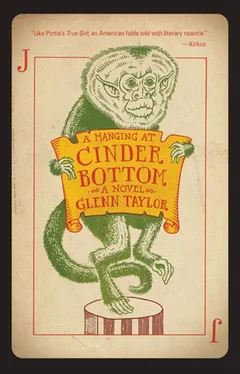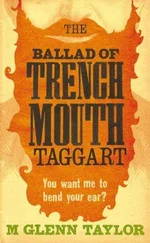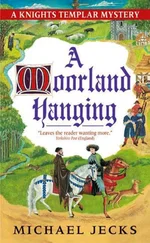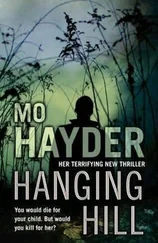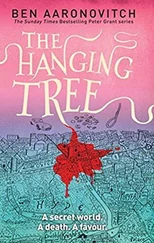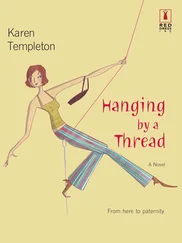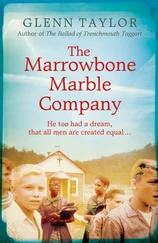Staples shoved him forward and closed the door behind. “I can smell my money,” Staples whispered. “I can smell my new life.” His bloodshot eyes welled up. “Got me a new baby boy,” he said, “and I aim to feed him beefsteak and oysters, buy him popguns and swinghorses and whatever else.” His woman in Matewan had been committed to the home for incurables, and he’d heard the boy was with a widow woman up Warm Hollow. He aimed to go and get him.
A plate with a half-eaten mutton chop sat on the desk. Abe looked across the office at the glass-paned door through which he’d stepped every day for the last six years. He wondered who sat in his chair.
Staples kept his eye and pistol trained on Abe as he tiptoed to the card-room door and put his ear to it.
Inside, the men guarded their hands, elbows on the slab. The single kerosene lamp lit their furrowed brows, and the roof over their heads bellowed the rain’s steady fall. Henry Trent had made a trip to his office safe and returned with the leather bank pouch containing two thousand dollars. The betting had gone high, and he knew somebody would soon cash out. He stood against the wall and gripped tight the leather.
Rutherford was at his side. He cupped his hand to his ear. “You hear a commotion?” he whispered.
“It’s the rain,” Trent answered.
Taffy Reed had just dealt fifth street when the red-haired boy’s accomplice, a bespectacled coal-company accountant named Boner, said, “It’s a toad-strangler ain’t it?”
This was the cue.
The red-haired boy stood and drew the pistol he’d smuggled in. He aimed it at Henry Trent’s face. “Hand me the pouch,” he said.
Rutherford put his hand to the ivory grips of his hogleg.
“Draw it and I’ll put one clean through him.” The boy moved toward them now.
“Keep your hands where he can see em,” Trent advised, and Rutherford did as he was told.
The boy, suddenly bold in speech and movement, held out his free hand.
Before he gave over the pouch, Trent told him, “Son, you will be dead before week’s end.”
He’d made the mistake of looking Trent in the face when he spoke, and he’d lost his boldness, but he took the pouch nonetheless and backed to the door with the gun still leveled.
Floyd Staples had kept his ear to the door, but now he stepped back and took one of the cast-iron boxing glove bookends from the empty shelf. He raised it up as the doorknob spun, and when the red-haired boy back-stepped into the office and shut the door, he brought it down hard, crushing the skull. The sound turned over Abe’s gut.
Staples swiped the pouch and ran. He was out the door and halfway across the main card room by the time Abe could make his feet move.
Talbert returned just as Abe was exiting, and they collided, overturning the stool and spilling to the floor the newspaper and Talbert both. The little man looked up at him. “Kid?” he said.
“I’m sorry Talbert.”
It was then that Rutherford managed to shove open the second door. It took all he had to push aside the dead weight of the red-haired boy. The door’s bottom rail made a smear of his blood, and Rutherford slipped on it, his long Colt drawn. As he righted himself, he spotted Abe and lined him in the sights.
Abe ran across the card room and into the lobby. He knocked the shoulder of a bellboy at the main door and hit the avenue. He turned south and slid in the mud. The rain had not slacked.
He’d nearly made it to the bridge when he realized he couldn’t go home.
The first shot came then. Abe thought he could hear it as it passed over his head.
He ran for the creek. It was almost over its banks. Black as tanner’s ooze and moving quick. A buggy wheel spun on the current.
The second shot came. He dove in the water.
It pulled at him hard and carried him fast. He found it difficult to swim toward the opposite bank. His arms burned, and as he bobbed and fought, he could see the railyard up ahead. A slow-moving empty was switching tracks.
He couldn’t get across. He would not make the bank in time to reach the railyard. He was going to die in that water.
This he’d accepted, until he saw the outline of a man running at creek’s edge. Light from the railyard lit him just sufficient to see. He was shouting. He carried something long in his hand.
On the order of his wife, Al Baach had gone looking for his middle boy at nine o’clock. She’d made him take her umbrella, and as he’d neared the bridge, he’d heard the gunshot and seen Abe dive in. He followed, and as he ran, he closed the ribs of his umbrella, secured the snap, and prepared to put it to use. Now he’d gotten ahead of Abe, who was fighting hard and almost at the bank.
The ground was nearly black, and Al tripped over the big knee root of a hard-leaning tree. The fall took his wind, but as he lay there in the mud, he grabbed ahold of the very root that had toppled him, and he stretched away from it, extending the umbrella to the water with his opposite hand.
Abe could see it there ahead of him, the metal tip his beacon. He closed both hands around it as he passed, and he kicked his feet and bent his elbows. Al held fast and pulled until he’d gotten his boy at the armpit and hauled him up onto the shore.
Together, they stood and slid and steadied themselves. Then they ran for the railyard. They ducked behind a high stack of brattice wood and watched an empty westbound train switch onto the mainline. It gathered a little speed, and as it passed, Abe saw Floyd Staples sitting in the open door of a boxcar with his legs hanging crossed at the ankle. He waved with one hand and held up his money pouch with the other.
Floyd Staples laughed while he watched the Baaches cower in the dark, soaked to the bone. And when the train had pushed out, he had a look at the big notes in the pouch. Red seals on every one. He smelled them. Then he unlaced his calf-high boot, stuck the pouch tight against his shin, and relaced. He reclined on the rocking floor of the car and pulled a cheap cigar and matches from one pocket and a picture of his woman from another. She wore a fur hat. Her dress was fringed in lace. Floyd had plans. After he got his baby boy, he’d go to Huntington and break her out of the home for incurables. He’d walk right in and pay off the guards. “I am king of all these hills,” Floyd Staples said to himself. And for a moment he believed it. Then he thought of the red-haired boy and what he’d done to him, and something happened to Floyd Staples that had never happened before. A fit overtook the man. It came quick and he sobbed, the heaving kind. His head hung. Snot and spit both came heavy, and he nearly vomited when he pictured that boxing glove bookend, the sound it made on thick bone plate. He’d never planned on killing the boy. Something overtook him in that office, and he knew he’d not ever outrun what he’d done.
Against the timber stack, Abe had told his daddy what had happened, shouting over the rain. He said that they were out to kill him, that he’d cut the wires, that they probably reckoned he was in cahoots with Staples.
Al was unruffled. “Rutherford will shoot before there is talk,” he said. He thought on what to do. “I will go and tell them the truth.” Down the line, they could see the brakeman’s lantern. It swung as it neared, lighting shapes on the black ground. Al knew the Friday nightshift brakeman — he was Robert, a patron at the saloon. When Abe was safely off, he could slip the man a dollar to keep his mouth shut.
He gauged the lantern’s distance, then looked his middle boy in the eyes. “I will tell them it was Staples alone,” Al said. “I will put them on his trail going west.” He wiped at his brow and took note of the long eastbound train now switching onto the mainline. Its high hoppers were loaded with coal. He put his hand to Abe’s neck. “Listen to me Abraham,” he said. “You go east.” He pointed to the slow-moving train. “You hop that one,” he said. “Do not ride on top — the turns will toss you off.” For a moment, he was flustered. Then he turned to the stack of brattice wood and pulled from it, as best he could make out, the straightest and flattest cut. He pushed it to Abe’s chest. “Lay this on the knuckles,” he said. “It will steady your feet. With your hands, you grip the ladder.”
Читать дальше
Конец ознакомительного отрывка
Купить книгу
